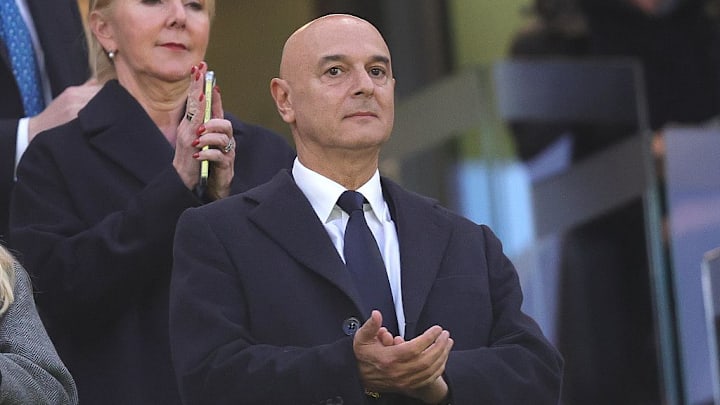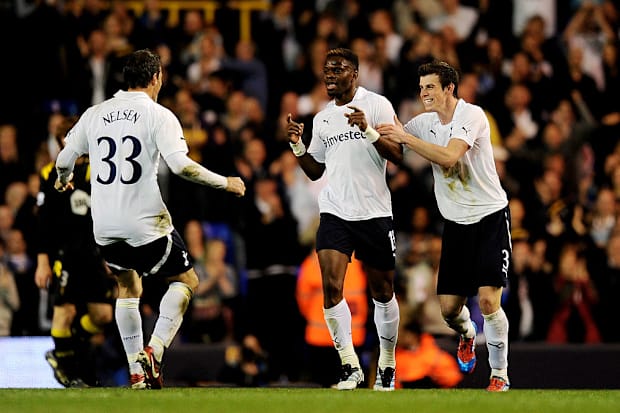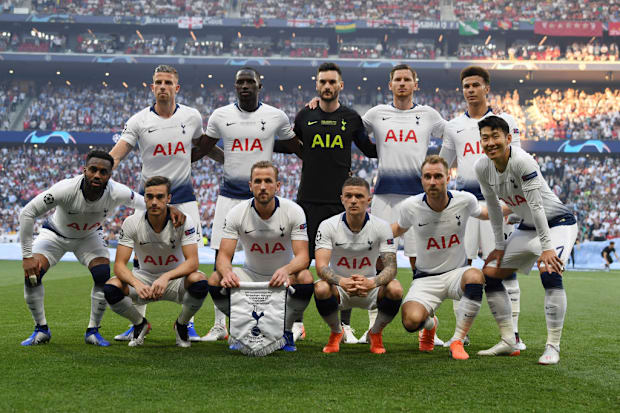Daniel Levy's Tottenham Exit Leaves Behind a Divisive Legacy That Splits Fans

Chick King. Beavertown. "Levy Out!" These three elements defined the matchday ritual in N17. And naturally, there was the frantic scramble to catch your train afterward.
Your perspective on Daniel Levy likely correlates with how closely you follow Tottenham Hotspur Football Club. For regular attendees, burdened by the Premier League's second-highest season ticket prices, the former executive chairman represented a parasitic figure behind the club's shortcomings.
Observers from afar might view Levy's 25-year reign more charitably. In truth, he has transformed Tottenham dramatically from its state when he arrived with the ENIC Group in 2001.
The club's worth stood at approximately £80 million ($107.82 million) following the Alan Sugar-led dark period, and Levy's commercial acumen propelled the Lilywhites into territory that supporters could hardly have envisioned at the millennium's dawn. By May 2025, Spurs ranked as the world's ninth most valuable club at £2.6 billion ($3.3 billion) according to Forbes, while producing over £500 million ($674 million) in yearly revenue.
Even Levy's harshest critics acknowledge the 63-year-old's commercial achievements, though for many, that's where the praise stops.
"Without the football aspect, Daniel Levy would be considered among the finest club executives," Jonathan Wilson astutely observes in his recent Guardian piece.
A clear distinction exists between Levy the commercial operator and Levy the football decision-maker. The former's excellence is undeniable, while the latter's shortcomings frequently surfaced.
Throughout his nearly quarter-century tenure, Tottenham secured merely two trophies, including last season's Europa League, allowing Levy to depart on a positive note. While their financial strength enabled competition near the Premier League summit and brief appearances among Europe's elite, the chairman's conservative spending and self-reliance philosophy seemed to limit the Lilywhites' potential ceiling.
Only six clubs have exceeded Tottenham's net expenditure in European football since ENIC's arrival, according to Transfermarkt, when Levy joined. Generally, he wasn't hesitant to spend during transfer windows. Yet despite the club's impressive facilities, the chairman's rigid salary structure typically restricted Tottenham to promising prospects rather than established stars.
Levy appeared to miss opportunities during his most successful periods. Midway through 2011-12, an exhilarating Spurs team under Harry Redknapp challenged for the Premier League crown. The January transfer window presented Levy's chance to provide Redknapp with the additional quality needed for Spurs, titleless since 1961, to genuinely compete with Manchester's powerhouses.

Productive La Liga forwards Álvaro Negredo, Fernando Llorente and Giuseppe Rossi were linked, but they settled for an aging Louis Saha. To address William Gallas's extended absence, veteran defender Ryan Nelsen arrived as cover. They claimed fourth place but missed Champions League qualification due to Chelsea's stunning Munich victory.
Eighteen months later, the Gareth Bale windfall arrived and departed with only Christian Eriksen and, somewhat, Erik Lamela proving lasting assets among seven new signings. Both would become crucial during the next promising era in N17, when Mauricio Pochettino arrived and revitalized a drifting club.
Yet some argue Poch succeeded despite the chairman's influence. Levy's ambitious stadium project coincided with that brilliant team's peak, which concluded their final White Hart Lane season undefeated in the Premier League. They endured nearly two complete seasons at Wembley, and the inevitable debt from the chairman's infrastructural vision meant squad reinforcement was limited, particularly during summer 2018's transfer-free window.
Pochettino's squad peaked in 2016-17 but enjoyed one final moment of glory through their miraculous 2019 Champions League final run. Liverpool prevailed in Madrid, marking a heartbreaking end to a magnificent yet silverware-free era.

Levy defenders would note the chairman didn't deploy Son Heung-min as left wing-back in the 2017 FA Cup semi-final, nor select Michel Vorm ahead of Hugo Lloris the following year. Perhaps Lucas Moura, Amsterdam's hero, deserved to start at the Metropolitano in 2019.
Ultimately, Spurs maintained their 'nearly men' reputation under Pochettino, with frustrated observers also criticizing the Argentine. His dismissive attitude toward cup competitions and emphasis on league standing mirrored Levy's apparent financial priorities.
Misguided ambition followed Poch's departure, as Levy's quest for immediate success proved counterproductive. High-profile managers arrived in N17 believing themselves above their inherited role, with José Mourinho and Antonio Conte leaving after brief peaks but, crucially, no silverware.
Ange Postecoglou became Levy's 13th managerial appointment, and the idealistic Australian managed to reunite an increasingly disillusioned fanbase. A pragmatic European approach helped Ange fulfill his second-season pledge, as Spurs captured the Europa League in Bilbao.
Setting aside that evening's emotions, Levy ruthlessly dismissed Postecoglou two weeks following the 1-0 Manchester United victory. However, the executive chairman has also fallen victim to ENIC's major structural overhaul. Ultimately, leadership may have blamed Levy for the club's worst league performance in nearly five decades.
This represents a pivotal moment in Tottenham's contemporary history, with most celebrating the news like the toppling of a dictator. Nonetheless, Levy's established foundations position Spurs as a sleeping giant ready to awaken—for better or worse.
The post-Levy era may not prove superior, and perhaps their future achievements will ultimately define the long-serving chairman's complex N17 legacy.
